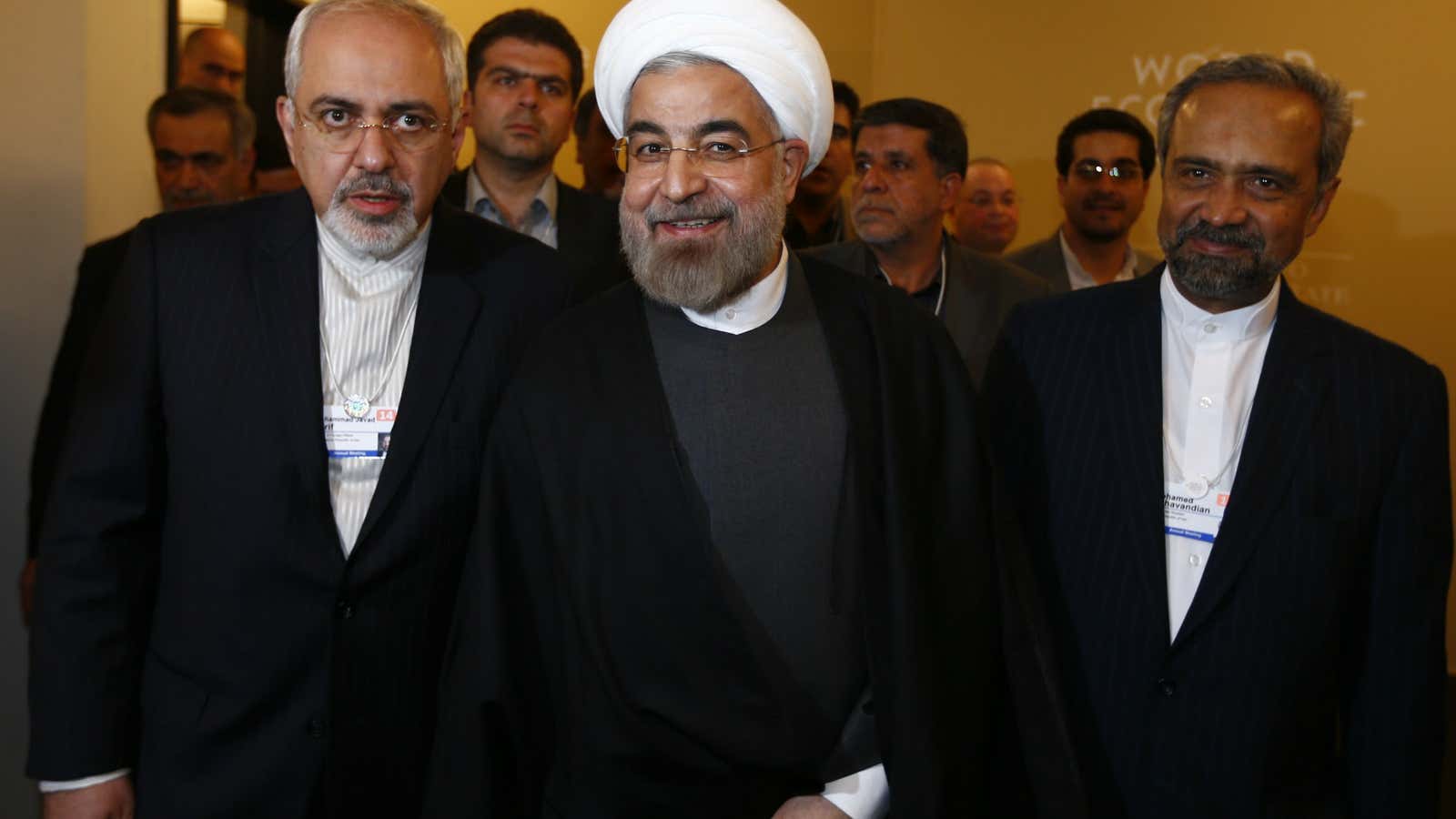Who’s to blame for the fire-bombing of the Saudi Arabian embassy in Tehran? The first reports suggested it was a spontaneous expression of public outrage at the execution of the Shia cleric and dissident Nimr al-Nimr.
But the Iranian government quickly sought to put the blame on shadowy, unidentified forces, acting on unexplained—but presumably nefarious—motivations.
The reasons for this skittishness are as yet unclear. You’d expect at least one of the many power centers in Iran, and especially the hardliners, to be eager to take credit for an attack on an old enemy. But while the rhetoric from all the main actors has been stridently anti-Saudi, nobody wants the responsibility for the attack on the embassy.
The buck-passing started at the top, with president Hassan Rouhani taking to Twitter to finger unnamed “rogue individuals and groups”:
Never mind that it was not the “Iranian people” who had “allowed” the destruction of the embassy, but his own government: the police had made little effort to stop the protesters.
Soon thereafter, Rouhani blamed “extremists,” still unnamed, for the attacks on the embassy in Tehran, and the Saudi consulate in Mashhad.
The president went on to call on the interior minister, the judiciary, and intelligence ministry to apprehend those responsible. Some protesters were duly arrested.
Mohammad Javad Zarif, Iran’s foreign minister and the government’s other reformist leader—and social media star—has not yet been heard from: As I write this, Zarif’s own Twitter account is conspicuously silent on the subject of the embassy fire-bombing.
Indeed, Zarif has been silent on Twitter since the end of 2015, when he expressed the wish that the new year would avoid the repetition of “past mistakes.” That the foreign minister should be mum on a major foreign policy issue is especially telling.
Iran’s Supreme Leader, Ayatollah Ali Khamenei, made no mention of the embassy fire-bombing on his Twitter account, but did summon “divine revenge” on the Saudis for the death of al-Nimr.
Iran’s Revolutionary Guards, meanwhile, fingered a familiar scapegoat for the cleric’s execution: Israel. And, as if to round off the list of usual suspects, the Shia militia Hezbollah, Tehran’s catspaw in Lebanon, pinned the “moral responsibility” for al-Nimr’s execution on—you guessed it—the US.
The last time a major foreign embassy was attacked in Tehran, in 1979, the country’s top executive, prime minister Mehdi Bazargan, took moral responsibility on himself—even though the attackers were not acting on his orders, and ignored his calls to release the American hostages. Bazargan resigned from office. The chances that any of Iran’s current leaders will display that kind of rectitude or courage are infinitesimal.
But there may be some small consolation to be gleaned from the efforts of all the power centers in the country to deflect the blame this time around: unlike in 1979, when the students who stormed the US embassy were turned into instant national heroes, the fire-bombers of the Saudi embassy are not being congratulated by the Iranian leadership.
Not yet, anyway.
